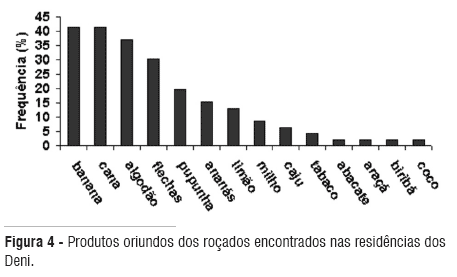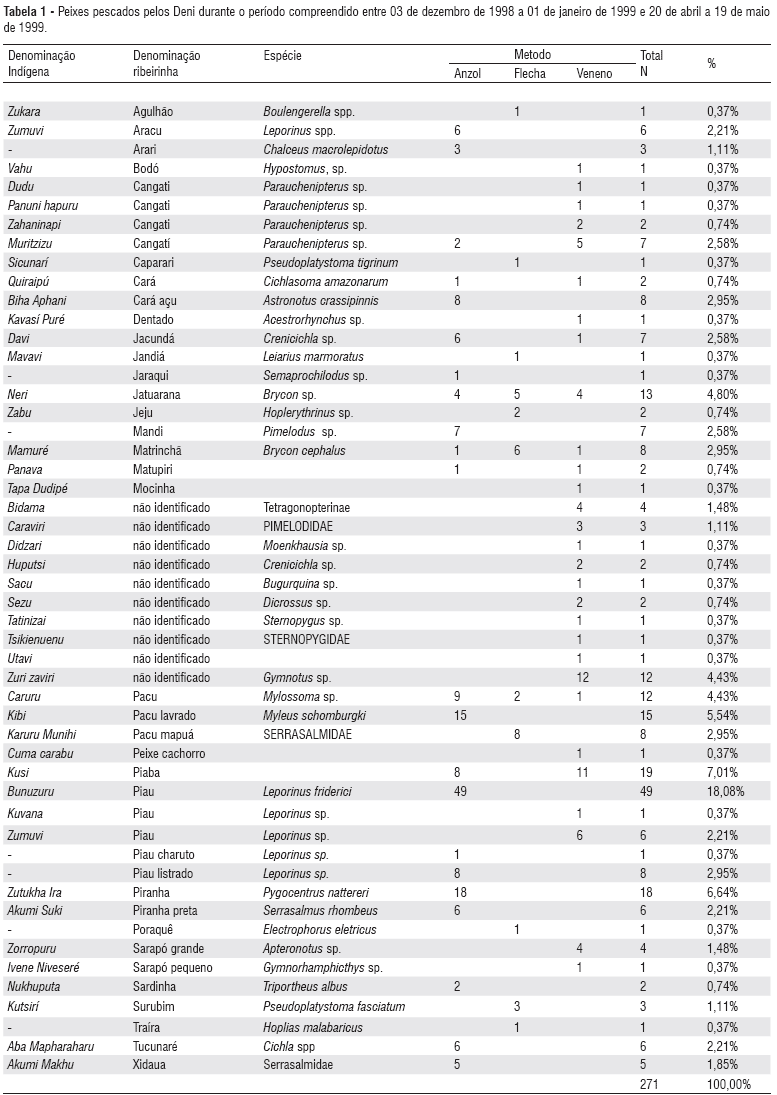Studies concerning the use of multiple natural resources by Amazonian indians are scarce. This work presents a portrait of how the Deni Indians, inhabitants of an area between two of the most important white-water rivers of the Amazon basin (Juruá and Purus Rivers), exploit natural resources in their territory. The Deni exploit both the upland and floodplain forests. They are a mix of horticulturalists and hunter-gatherers, using their whole territory to obtain what they need to live. As a rule, they move their settlements periodically, avoiding local resource depletion. The Deni modify the landscape at a local level, causing an increase in resource availability. Abandoned villages, fruit orchards and crops are places where floristic and faunistic resources concentrate and are systematically exploited. The impacts of such management are apparently minimal. For the Deni society natural resources are the only way to get goods for survival, but it is inserted in the periphery of a capitalist system which exploits and will continue to exploit natural resources in order to produce a surplus for the acquisition of industrialized products, independently of external judgements. This should be the starting point to evaluate sustainability in this local management system.
Amazônia; Hunting; Fishing; Agriculture; Subsistence; Indians; Deni





